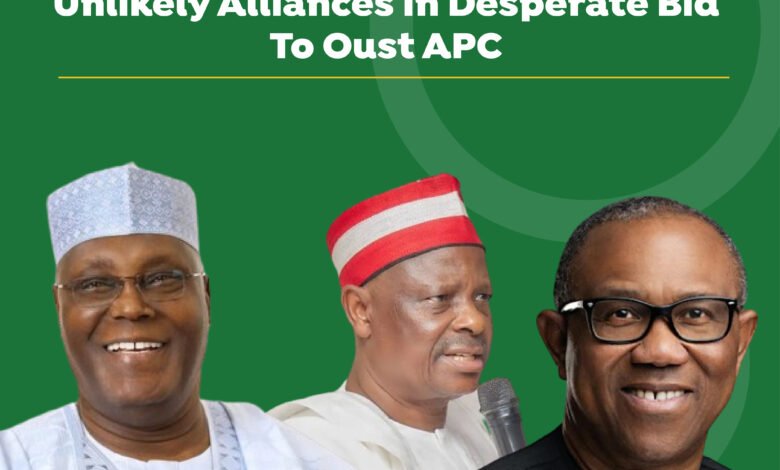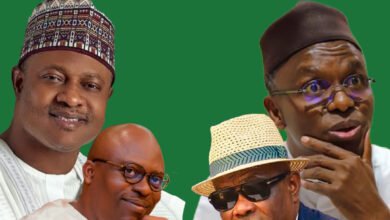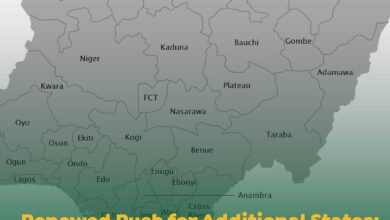2027: Opposition Parties Exploring Unlikely Alliances in Desperate Bid to Oust APC

In the messy world of politics, ideology isn’t always king. Sometimes, the most unexpected alliances form once they identify a common foe. Such ‘strange bedfellows’ may have once been sworn enemies, but when a formidable threat emerges, they are willing to set aside their long-standing disagreements and join forces against a shared foe, forging an unbreakable bond in the process.
As President Bola Tinubu prepares to mark his first year in office on May 29, the race for the 2027 general elections has begun and it appears to be gaining unprecedented momentum.
Notable politicians are signalling a potential merger and alliance to challenge the ruling All Progressives Congress (APC). This development has sparked excitement and curiosity among political analysts, commentators, and enthusiasts. Will this merger materialize, and if so, what implications will it have on the political landscape of Nigeria?
Former Vice President Alhaji Atiku Abubakar has consistently called for opposition party unity to dislodge the APC in 2027.
In 2014, Atiku was part of the politicians who formed the APC, which defeated the PDP in a historic election. But presently, no politician has demonstrated that readiness more than Peter Obi.
Obi’s Relentless Drive
Obi has been touring the country, spotlighting his efforts and identifying with the oppressed. He has also been exchanging pleasantries with various communities, including Muslim communities in the southwest and north, gifting boreholes, and breaking fasts with them. His actions have been interpreted as strategically building bridges and fostering relationships with critical stakeholders. However, critics argue that his tactics may backfire due to his past divisive rhetoric. Beyond his borehole-drilling endeavours, Obi has met with influential figures like former Vice President Atiku Abubakar, former Senate President Bukola Saraki, and former Jigawa state governor Sule Lamido.
Analysts link these meetings to the forthcoming general elections. While Obi hasn’t disclosed the purpose of his visits, Prof. Pat Utomi, a political economist, hints at a possible merger and alliance of major opposition parties.
A New Tribe
Prof. Utomi envisions a values-driven movement focused on human progress, rather than a political party. He recognizes that politicians often incite conflict by discussing ethnicity, religion, and related topics.
Therefore, he proposes a political platform for development with an ideology and goals that the public can hold accountable. This approach, according to Utomi, will promote unity and progress, rather than division and stagnation.
He said: “My first point of call is to create this new tribe, which is not a political party, but rather a movement focused on values that shape human progress.”
However, analysts question the realism of Prof. Utomi’s ideal political party, given Nigeria’s experiences with parties like the African Action Congress (AAC) and the Labour Party.
Establishing a party that can lift Nigeria out of corrupt and inept leadership is a challenging task. The country’s political history is replete with examples of parties that promised much but delivered little.
Repeating the APC Masterstroke
The merger of the defunct ACN, CPC, and ANPP, leading to the formation of APC in 2014, is considered a model for the proposed party. Observers note that an open, transparent, and nationally conscious party can position itself to challenge the APC in the next poll. The APC’s success in 2015 was largely due to its ability to unite disparate groups and present a united front. Can the opposition parties replicate this feat?
While Prof. Utomi’s assertion differs from the reality proposed by Alhaji Atiku Abubakar, Peter Obi, Senator Bukola Saraki, and Sule Lamido, analysts suggest any merger without these politicians may not succeed in the long run. They believe the characters that will define the distant era are still scheming and planning to snatch the Presidency from the current party in power.
Implications and Challenges
If the merger materializes, it will have significant implications for the political landscape of Nigeria. Firstly, it will create a formidable opposition force that can challenge the APC’s dominance. Secondly, it will provide an alternative platform for politicians and citizens who feel disillusioned with the current political order. However, the merger will also face challenges, such as reconciling the different interests and ideologies of the various parties involved.In addition, the merger will need to navigate the complex web of Nigerian politics, where ethnicity, religion, and regionalism often play significant roles. The new party will need to strike a balance between these competing interests and present a united front to the electorate.
The APC on its part is equally not resting on her oars as the ruling party is working to consolidate on the gains of the 2023 election and ensure that some of the mistakes made are not repeated.
More than anything else, the APC know if they deliver creditably well on their campaign promises, it will be difficult if not totally impossible to be unseated by any merger or political alliances.





